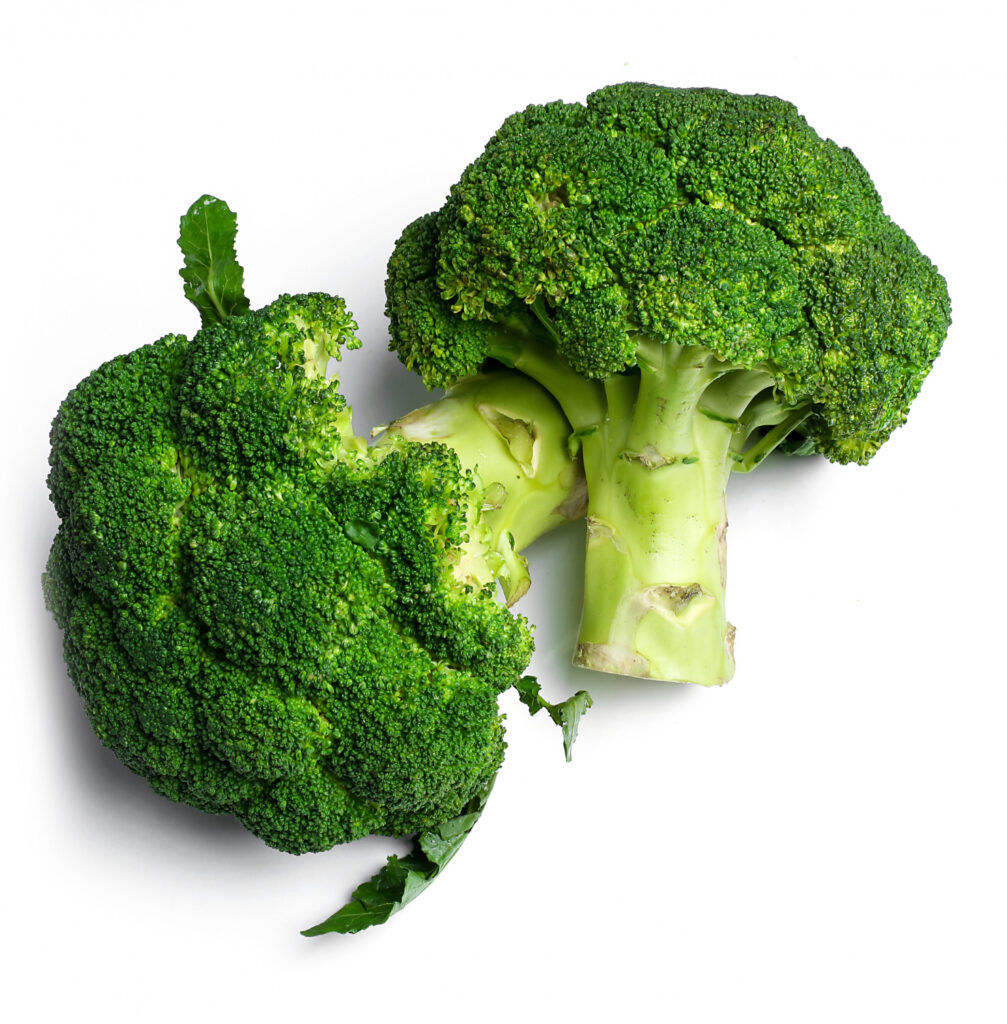
Broccoli, a nutrient-rich, low-calorie cruciferous vegetable, offers numerous health benefits. It belongs to the same family as kale, cauliflower, Brussels sprouts, bok choy, cabbage, collard greens, rutabaga, and turnips.
Nutritional Content
Broccoli is packed with vitamins, minerals, and antioxidants that play a crucial role in maintaining good health. These antioxidants help neutralize harmful free radicals—molecules produced during metabolism and environmental stress—that can cause cell damage and lead to various diseases, including cancer.
Health Benefits
Reducing the Risk of Cancer
Broccoli contains several antioxidants, including sulforaphane, which may help prevent the cell damage that leads to cancer. Sulforaphane is a sulfur-containing compound that gives cruciferous vegetables their characteristic bitter taste. Research suggests that sulforaphane and other compounds in broccoli may play a role in “green chemoprevention,” using plant extracts to help prevent cancer. Additionally, broccoli contains indole-3-carbinol, which has been shown to have potent antitumor properties.
Improving Bone Health
Calcium and collagen work together to build strong bones. Over 99% of the body’s calcium is stored in bones and teeth. Vitamin C, found in broccoli, is essential for collagen production. Vitamin K, also present in broccoli, is important for bone health and blood coagulation. A cup of broccoli provides 3% to 3.5% of the daily calcium need, 45–54% of the daily vitamin C need, and 64–86% of the daily vitamin K need, depending on age and sex.
Boosting Immune Health
Vitamin C is a powerful antioxidant that supports the immune system and helps prevent diseases like cancer, cardiovascular disease, cataracts, and anemia. In supplement form, vitamin C may also reduce the symptoms and duration of the common cold.
Improving Skin Health
Vitamin C in broccoli helps produce collagen, which supports body cells and organs, including the skin. As an antioxidant, vitamin C can prevent skin damage and reduce wrinkling due to aging. It may also play a role in preventing or treating skin conditions like shingles and skin cancer.
Aiding Digestion
Dietary fiber in broccoli promotes regularity, prevents constipation, and maintains a healthy digestive tract, thereby lowering the risk of colon cancer. A cup of broccoli provides 5.4% to 7.1% of the daily fiber requirement.
Reducing Inflammation
Broccoli may help reduce inflammation, which can occur due to infections or chronic autoimmune conditions like arthritis and type 1 diabetes. A 2014 study found that the antioxidant sulforaphane in broccoli reduced inflammation markers. Additionally, a 2018 study showed that consuming 30 grams of broccoli sprouts daily for 10 weeks significantly lowered inflammation levels.
Reducing the Risk of Diabetes
Broccoli’s sulforaphane content may help manage blood sugar levels in people with type 2 diabetes. A high-fiber diet, including broccoli, is associated with a reduced risk of type 2 diabetes and lower blood sugar levels.
Protecting Cardiovascular Health
Broccoli’s fiber, potassium, and antioxidants may help prevent cardiovascular disease (CVD). A 2018 study found that older women who consumed cruciferous vegetables had a lower risk of atherosclerosis. Potassium in broccoli helps relax blood vessels, lowering high blood pressure and reducing heart disease risk. A cup of broccoli provides nearly 5% of the daily potassium need.
Nutritional
A cup of broccoli (76 grams) contains:
- Calories: 24.3
- Carbohydrate: 4.78 g
- Fiber: 1.82 g
- Calcium: 35 mg
- Phosphorus: 50.9 mg
- Potassium: 230 mg
- Vitamin C: 40.5 mg
- Folate: 49.4 mcg
- Vitamin A: 6.08 mcg
- Beta-carotene: 70.7 mcg
- Lutein and zeaxanthin: 566 mcg
- Vitamin E: 0.11 mg
- Vitamin K: 77.5 mcg
Broccoli also contains various B vitamins, zinc, copper, selenium, and a range of antioxidants.
Dietary Tips
When buying broccoli, choose pieces that are tight, firm, and dark green. Avoid pieces that are limp, yellowing, or wilting. Store unwashed broccoli in loose or perforated bags in the refrigerator crisper drawer and wash it just before eating to prevent mold and limpness.
Broccoli is high in vitamin K, which can interfere with blood-thinning medications like warfarin. People on these medications should not increase their broccoli intake suddenly. Additionally, some individuals may experience allergic reactions to broccoli, such as hives, swelling, or difficulty breathing, and should seek medical help if these symptoms occur.
Broccoli is considered one of the “clean” vegetables with a low risk of pesticide contamination according to the Environmental Working Group.
By including broccoli in your diet, you can enjoy its numerous health benefits while adding a flavorful and nutritious vegetable to your meals
A Quick Review
Broccoli is a low-calorie, nutrient-dense vegetable that offers numerous health benefits. It is rich in vitamins, minerals, and antioxidants like sulforaphane, which can help reduce the risk of cancer. Additionally, broccoli supports bone health, boosts the immune system, improves skin health, aids digestion, reduces inflammation, and protects cardiovascular health. It’s a versatile vegetable that can be easily incorporated into various dishes for a nutritious diet.












